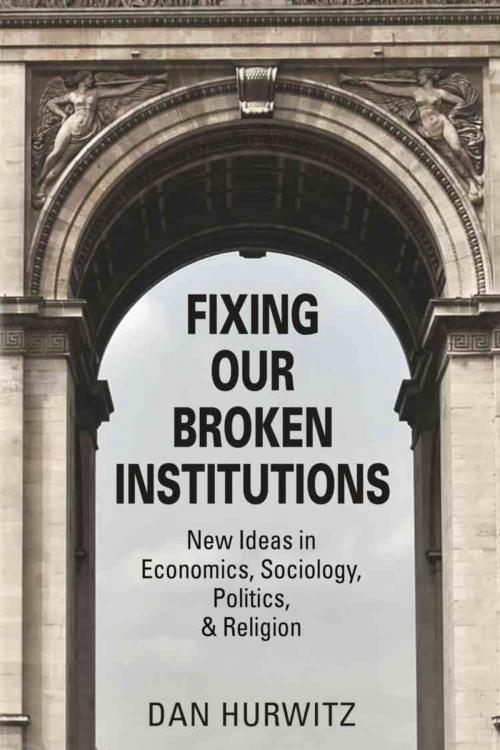FIXING OUR BROKEN INSTITUTIONS: New Ideas in Economics, Sociology, Politics, & Religion
Business & Finance, Economics, Theory of Economics, Nonfiction, Social & Cultural Studies, Political Science, Government, Democracy, Religion & Spirituality| Author: | Dan Hurwitz | ISBN: | 9781634926171 |
| Publisher: | BookLocker.com, Inc. | Publication: | November 10, 2017 |
| Imprint: | Language: | English |
| Author: | Dan Hurwitz |
| ISBN: | 9781634926171 |
| Publisher: | BookLocker.com, Inc. |
| Publication: | November 10, 2017 |
| Imprint: | |
| Language: | English |
In his new book, Hurwitz, employs his engineering background to confront a number of structural weaknesses in the institutions we rely on. One example; racial tensions in our inner cities.
The author recommends dividing all urban residential districts into manageable neighborhoods that are, clearly demarked, denominated, open-bordered, and traffic restricted. Each neighborhood would be a self-sufficient community with schools, etc. Neighborhood gangs would be conscripted into teams paid for doing constructive work such as maintenance, social services, and crime reporting. Adult sponsors would be responsible for team extra curricular activities.
From their early teens, kids would also be entitled to a monthly stipend paid into his or hers private account from which no sums could be withdrawn prior to their twenty-first birthdays. The accounts would be subject to penalties for such infractions as arrests and drug abuse. Thus youths would face a choice of forfeiting their stipends or enjoying a stake in a protective society.
Costs? Programs such as these represent a bargain compared to the fortunes currently spent on law enforcement, etc. Voluntary crime-prevention pays.
In his new book, Hurwitz, employs his engineering background to confront a number of structural weaknesses in the institutions we rely on. One example; racial tensions in our inner cities.
The author recommends dividing all urban residential districts into manageable neighborhoods that are, clearly demarked, denominated, open-bordered, and traffic restricted. Each neighborhood would be a self-sufficient community with schools, etc. Neighborhood gangs would be conscripted into teams paid for doing constructive work such as maintenance, social services, and crime reporting. Adult sponsors would be responsible for team extra curricular activities.
From their early teens, kids would also be entitled to a monthly stipend paid into his or hers private account from which no sums could be withdrawn prior to their twenty-first birthdays. The accounts would be subject to penalties for such infractions as arrests and drug abuse. Thus youths would face a choice of forfeiting their stipends or enjoying a stake in a protective society.
Costs? Programs such as these represent a bargain compared to the fortunes currently spent on law enforcement, etc. Voluntary crime-prevention pays.















